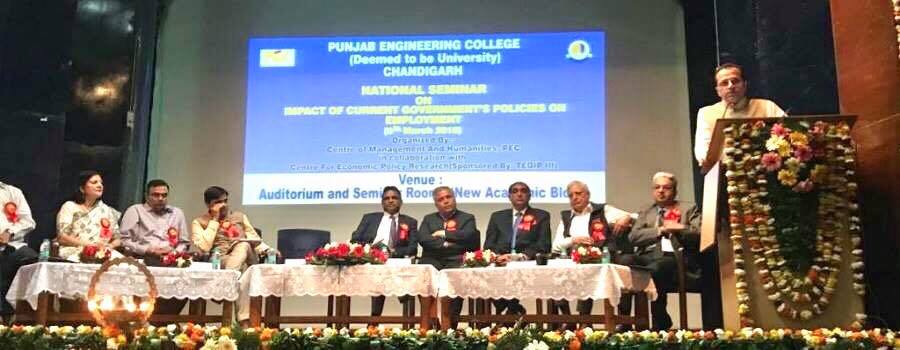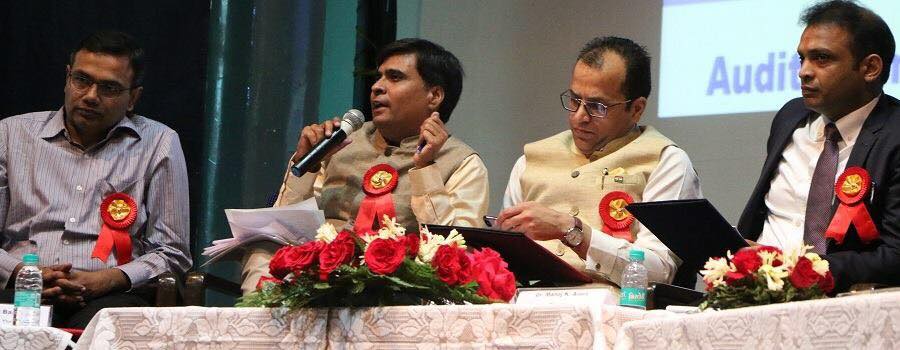SEMINAR ON IMPACT OF CURRENT GOVERNMENT’S POLICIES ON EMPLOYMENT
March 08, 2018
Impact of Current Government’s Policies on Employment A national seminar on ‘Impact of Current Government’s Policies on Employment’ organised by the Centre of Economic Policy Research (CEPR) in collaboration with Centre for Management and Humanities (CMH), Punjab Engineering College (Deemed to be university) in Chandigarh on March 8, 2018 saw experts from different walks of life, throwing light on emerging employment opportunities thanks to several policy interventions. They also spoke about the challenges being faced by the government while creating employment opportunities. The day-long seminar turned out to be an extremely meaningful engagement of experts to identify and explore advances made in the field of education and employment. They also tried to address the challenges that lie ahead in successful implementation of government policies pertaining to economic reforms, directed towards employment generation.

The issues and themes which came up for discussion during deliberations included recent economic reforms on employment, impact of Pradhan Mantri Mudra Yojana on employment, Skill India initiative, Make in India, Digital India, Pradhan Mantri Kaushal Vikas Yojana on employment and others. The speakers and panelists were Prof Sharda Kaushik, chairperson, CMH, PEC, Chandigarh, Prof Anil Koul, Director, IMTECH), Dinesh Dua, CEO, Nectar Life Sciences, Prof VK Nangia, IIT, Roorkee, Dr Subhash Sharma, Director, CEPR, Kuljit Bains, Punjab Bureau Chief, The Tribune, Chandigarh, Prof Ashutosh Kumar, Department of Political Science, Panjab University, Chandigarh and senior journalist Rajeev Ranjan Roy, Senior Assistant Editor, Daily Post, Chandigarh.

Prof Koul in his interventions underscored the need for better synergy between the government and other stakeholders, while Dr Subhash Sharma of CEPR felt the need to be more aggressive in implementing the programmes aimed at generating more employment opportunities. Rajeev Ranjan Roy batted for total implementation of capital expenditure programmes, while Kuljit Bains stressed the need for optimum utilisation of public funds. Dinesh Dua of Nectar Life Sciences was particular about further improving the ease of doing business, while Prof Nangia felt the need to further streamline and benchmark the quality of higher education in the country. Ashwin Jauhar, vice chairman, CEPR, in his concluding remarks said that the emphasis of policies should be on creating more employers. Prof Sharda Kaushik said that the Central government was on the right track and suggested that more emphasis should be on ensuring that the benefits of schemes reach the targeted groups wholesomely.